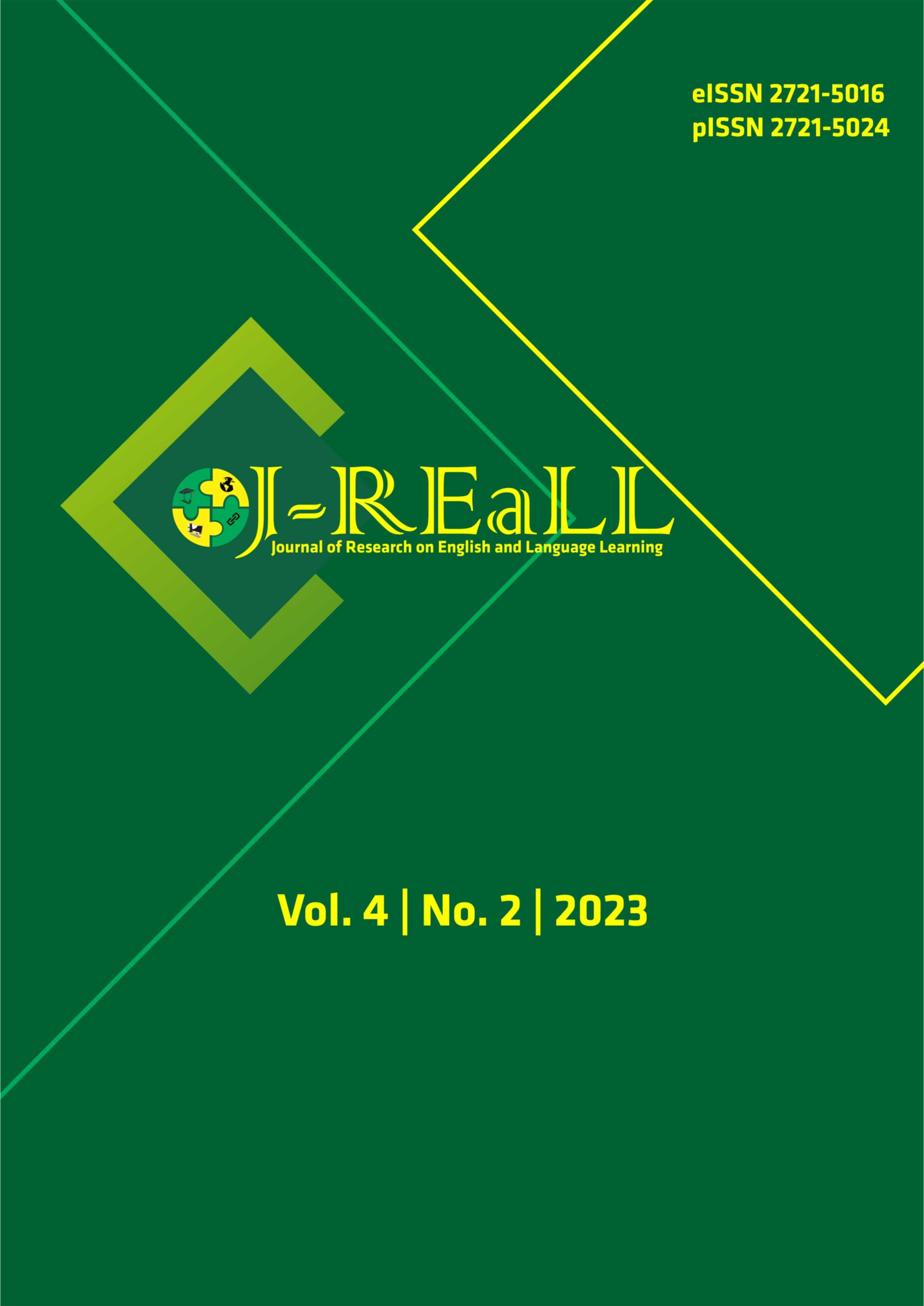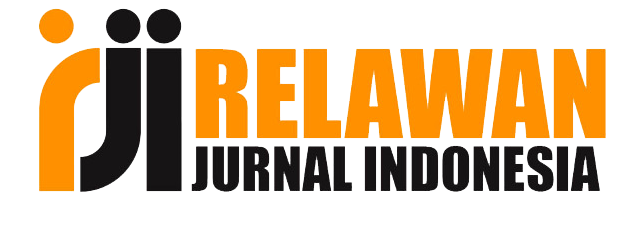American and Korean YouTuber's politeness strategies in reaction to Indonesian songs
DOI:
https://doi.org/10.33474/j-reall.v4i2.20116Keywords:
American, Korean, politeness strategy, YouTuberAbstract
Language as a communication tool aims to express one’s ideas and feelings. Through good communication, a person’s feelings or ideas can be realized well. The science of communicating well is explored in pragmatics, especially in communicating with the cultures of different countries. This research aims to examine the politeness strategy between American and Korean YouTubers in reacting to Indonesian songs. The data analysis in the study used cross-cultural pragmatic studies of politeness strategies by Brown and Levinson. The method used in this research is a qualitative descriptive method that is divided into three stages, namely the data collection stage, the data analysis stage, and the stage of interpreting the results of data analysis. The study results showed that American YouTubers use more polite strategies in reacting to Indonesian songs, Americans prefer to use direct politeness strategies because they prefer to express opinions directly. Meanwhile, Korean YouTubers in reacting to Indonesian songs choose soft and calm speech acts to express their opinion, so Koreans prefer to express their opinion with calm direct politeness speech.
References
Alfiansyah, M. A. (2021). Analisis kesopanan tindak tutur direktif dalam pembelajaran daring kajian: Pragmatik: Literasi: Jurnal Ilmiah Pendidikan Bahasa, Sastra Indonesia dan Daerah, 11(2), 53-68.
Brown, P., Levinson, S. C., & Levinson, S. C. (1987). Politeness: Some universals in language usage (Vol. 4). Cambridge university press.
Djajasudarma, T. F. (2006). Metode linguistik: Ancangan metode penelitian dan kajian.
Idemaru, K., Winter, B., & Brown, L. (2019). Cross-cultural multimodal politeness: The phonetics of Japanese deferential speech in comparison to Korean. Intercultural Pragmatics, 16(5), 517–555. https://doi.org/10.1515/ip-2019-0027
Jakučionytė, V. (2020). Cross-cultural communication: creativity and politeness strategies across cultures. A comparison of Lithuanian and American cultures. Creativity Studies, 13(1), 164–178. https://doi.org/10.3846/cs.2020.9025
Leech, G. (1993). Corpus annotation schemes. Literary and Linguistic Computing, 8(4), 275–281.
Nadar, F. X. (2009). Pragmatik & penelitian pragmatik. Graha Ilmu.
Nida, C. F. (2020). Comparative study of speech act advice-giving in indonesian culture and american culture found in television series. CaLLs (Journal of Culture, Arts, Literature, and Linguistics), 6(2), 238–253. http://dx.doi.org/10.30872/calls.v6i2.4731
Putu, D., & Wijana, I. (1996). Dasar-dasar Pragmatik. Yogyakarta: Andi.
Ruhi, Ş., & Işık-Güler, H. (2007). Conceptualizing face and relational work in (im) politeness: Revelations from politeness lexemes and idioms in Turkish. Journal of Pragmatics, 39(4), 681–711. https://doi.org/10.1016/j.pragma.2006.11.013
Sperber, D., & Wilson, D. (1986). Relevance: Communication and cognition (Vol. 142). Citeseer.
Verhaar, J. W. H. (1975). Dell Hymes, Foundations in Sociolinguistics: An ethnographic approach. Philadelphia: University of Pennsylvania Press, 1974. Pp. x+ 245. Language in Society, 4(3), 352–361.
Wulandari, A. (2021). Tindak tutur ekspresif dalam talkshow “Sarah Sechan” dan “The Ellen Degeneres show”: Kajian pragmatik lintas budaya. Lite: Jurnal Bahasa, Sastra, Dan Budaya, 17(1), 1–18. https://doi.org/10.33633/lite.v17i1.4490
Downloads
Published
How to Cite
Issue
Section
License
Copyright (c) 2023 Faridah Eka Fatmala

This work is licensed under a Creative Commons Attribution 4.0 International License.
Authors who publish this journal agree to the following terms:
- Authors retain copyright and grant the journal right of first publication with the work simultaneously licensed under a Creative Commons Attribution License that allows others to share the work with an acknowledgement of the work's authorship and initial publication in this journal.
- Authors can separately make additional contractual arrangements for non-exclusive distribution published by the journal (e.g., publish it in a book), with an acknowledgement of its initial publication in this journal.
- Authors are allowed and encouraged to send their work via online (e.g., in the institutional repositories or their website) after published by the journal.





















